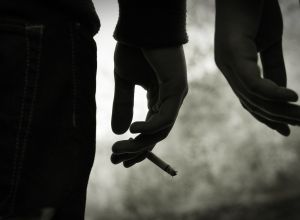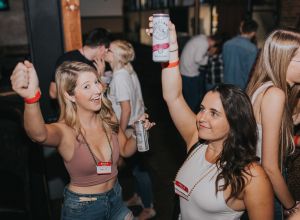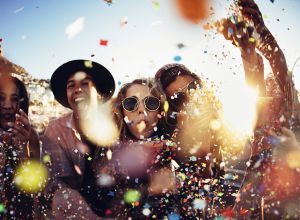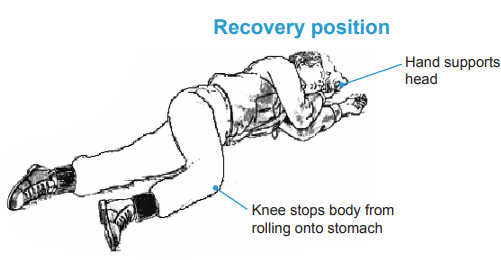Drugs
There are lots of reasons why young people begin to experiment with drugs, which can lead to more frequent or problematic use. However, we know most young people don’t use drugs.
Drug use can affect anybody no matter what their circumstances or background. Nobody should ever feel that they can’t ask for help, or that they would get in trouble. There are drug services available to support young people across the region. Check out our Toolkit what's the harm page to find help in your local area
Types of Drugs
- Illegal substances which can be stimulatants, depressants or hallucinogens for example heroin, cannabis and ketamine
- Misused household products for example laughing gas (nitrous oxide), glues and aerosols
- Some medicinal drugs for example gabapentin and codeine
- Alcohol and tobacco
- Psychoactive substances for example ‘legal highs’
You can find out more about different drugs on the Frank Drugs A to Z or call Frank on 0300 123 6600 at any time.
What's the harm?
No drug use is completely safe. If you buy illegal drugs, you can't be sure what's in them, so there's a higher risk of poisoning or overdose, leading to brain damage or even death.
Even if friends claim they had a good time with a drug, there's no guarantee that your body will react the same. Many drugs cause brain injuries after only a small amount.
Some illegal drugs like cannabis are more common, but they still carry long-term health risks and can affect your education and relationships. If you're under 18, drugs can affect your brain development and overall health.
Effects of drugs
All drugs are addictive. Each person experiences different effects when they take drugs.
Drugs can cause:
- Physical health problems
- Mental health problems
- Overdose
- School, college or university problems
- Changes in personality
- Risks to your personal safety
- Trouble with the police
- Debt problems
If you’re worried about the effects of a specific drug, take a look at the Frank drugs A-Z
Feeling pressured to take drugs
- You are not alone. Most young people don’t take drugs
- Prepare yourself. Think about how you want to respond if someone offers you drugs so you know what to say
- Say no clearly and firmly without making a big deal about it
- If you’re finding it hard to be yourself within your group take some time away. Think about if it’s time to find a different group of friends
These tips can help you keep safe:
-
Eat before you go out
-
Dress for the weather – alcohol increases hypothermia risk
-
Plan how you’ll get home - keep money for fares
-
Don’t leave your drink unattended or accept drinks from strangers in case someone adds something to it that you don’t know about (spikes your drink)
-
Stay with friends – being in a group is safer
-
Look after yourself and your friends
-
If you drink alcohol, learn to pace yourself, and consider lower-alcohol drinks or alcohol-free beers. Don’t try and keep up with your friends – they may have different levels
- If a person is drunk then remember that they are not legally able to give consent to sexual activity
- Don't drink and drive. Don't get in a car with someone who has been drinking.
-
Don’t mix drugs and alcohol
-
Stay hydrated - but not too much. Ecstasy (MDMA) can cause the body to stop making urine. If you drink water too quickly it can affect your salt balance, which is dangerous
-
Don't give in to peer pressure. Others may be drinking too much or taking drugs, but you can make your own choices.
Check out our Toolkit what's the harm page in your area for more help




Concerned about someone
Drugs can be a hard subject to discuss, especially if you think your friend or relative has a problem.
Keep an open mind. People take drugs for lots of reasons. Try to understand why your friend or relative is taking drugs. Some people take drugs to fit in. You could offer to do things with them that don't involve drugs.
Most people overcome their drug use before any serious harm is caused. Sometimes, even if you do offer support they might not change their behaviour.
Frank has more information about what to do if you are concerned about someone.
Call Frank anytime on 0300 123 6600 for confidential advice.
Getting help in an emergency
Call 999 if you, or someone you are with, needs medical help, has taken an overdose or is violent to themselves or others.
Tell the ambulance crew everything you know about the drugs taken. It could save their life.
If you have any drugs left, hand them over as it may help.
What should you do?
- Stay with them until the ambulance arrives
- Stay calm
- Be reassuring
- Don’t scare them or chase after them
- Sit them in a quiet place
- Try to find out what they’ve taken
- Check they're breathing
- If they have passed out then lie them on their side in the recovery position

If they are awake:
- Keep them sitting up
- Offer sips of water
- Keep them warm with a coat or blanket
What should you NOT do?
- Never leave them alone
- Do not give them coffee
- Don't put them under a cold shower
Frank has more information about what to do in an emergency.


